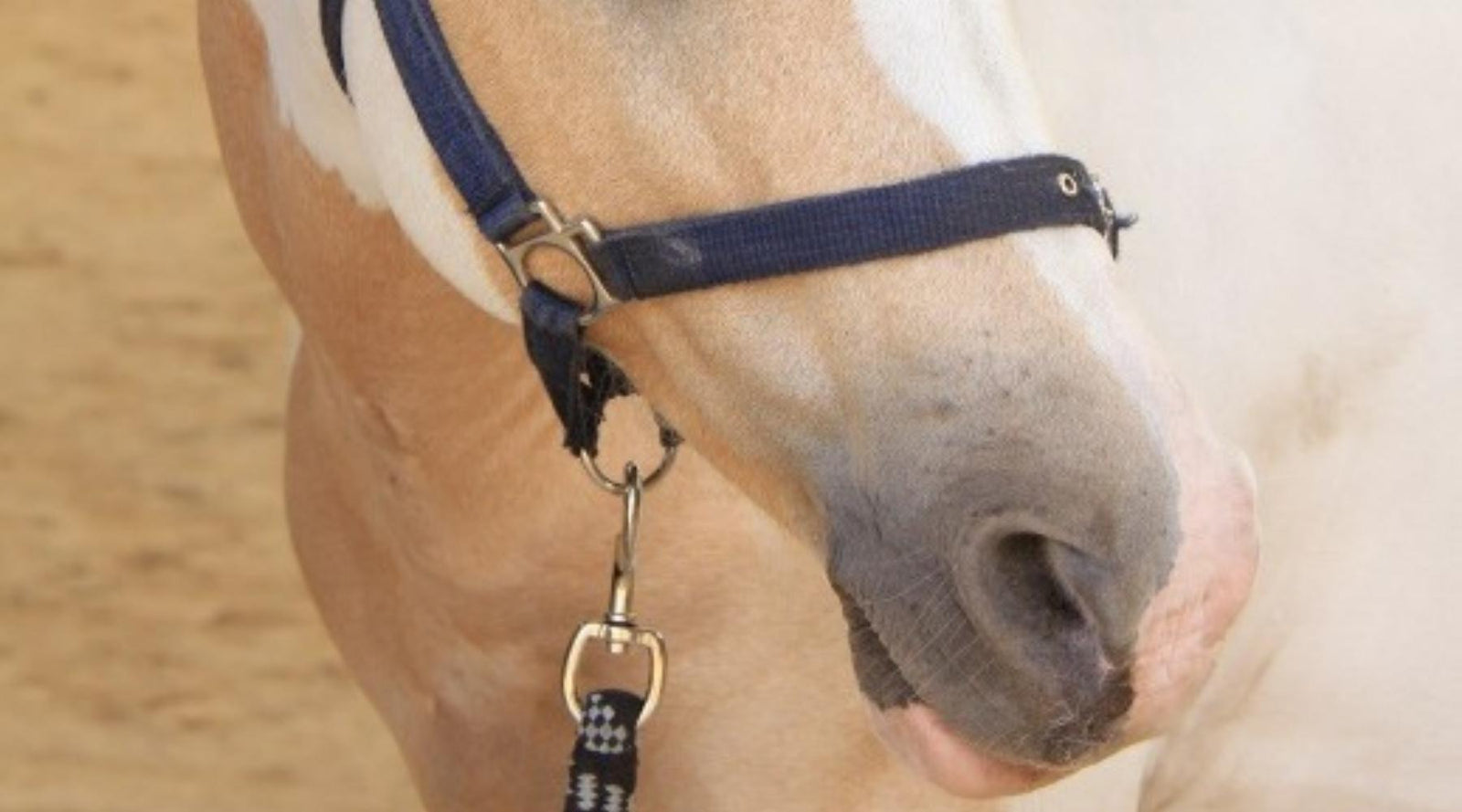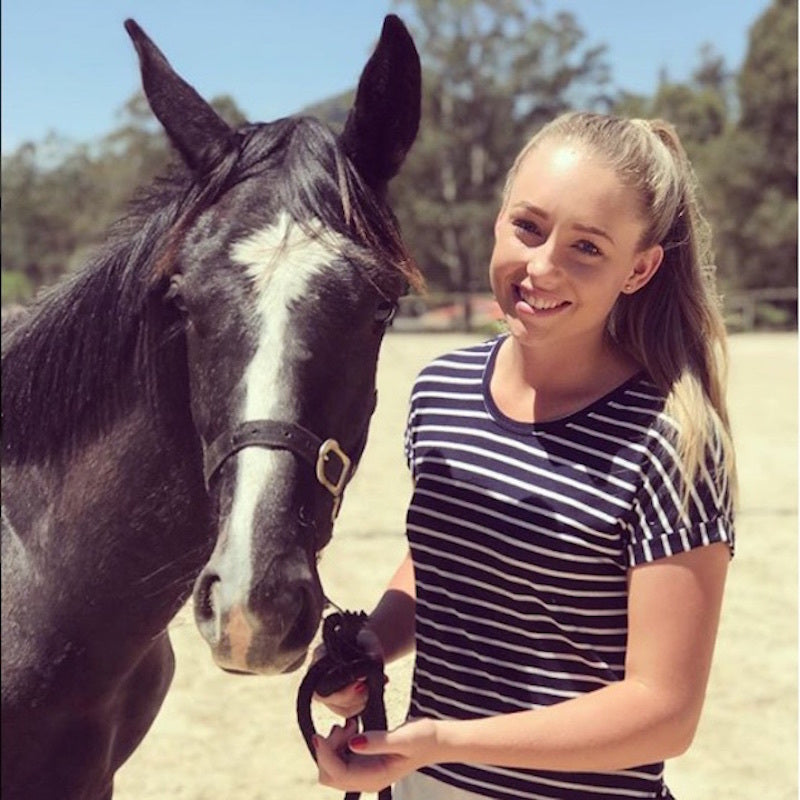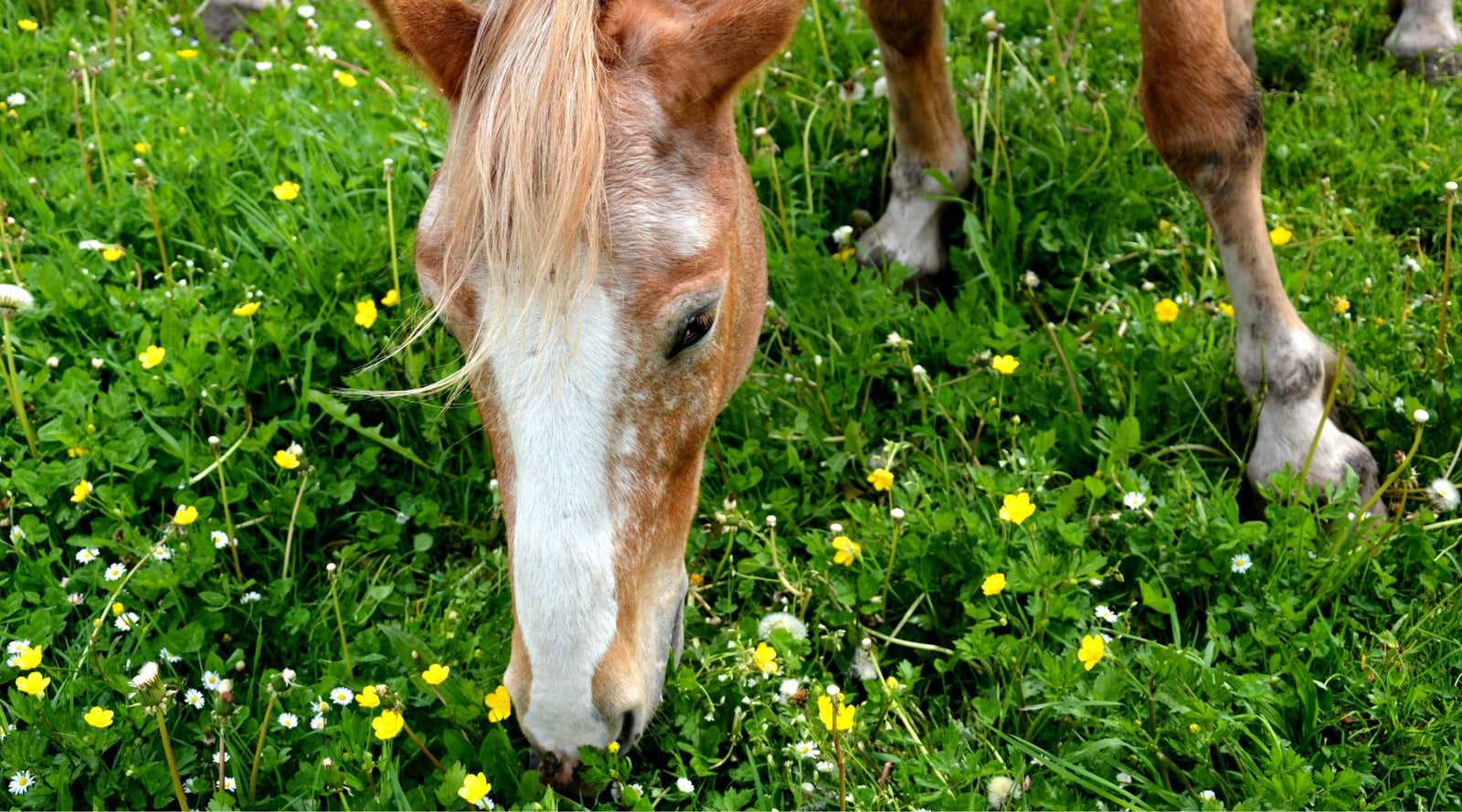Triple Hippo Rewards points are now available on all purchases made before midnight 24th February 2026.
Triple Hippo Rewards points are now available on all purchases made before midnight 24th February 2026.
Horse & Rider
No Mess Sun Care for Pink-Skinned Horses, Dogs & Cats
by Fiona Lane October 06, 2022

If your horse, dog or cat is pink-skinned then you’ll be pleased to know we make a no-mess sun care remedy just for them. And you’ll be even happier to know that it isn't a sticky, messy cream or a nose guard!
Our ground-breaking Sol Plus remedy is an orally dosed liquid so it's super easy to administer to horses, dogs, cats and even livestock!
But wait. An oral remedy? How could that possibly help?
How does an oral remedy help with sun protection?
It sounds unscientific until you consider that we humans are often prescribed oral medicines such as tetracycline antibiotics and acne medications that carry warnings to avoid sunlight because of increased susceptibility to sunburn. Our remedy uses a similar mechanism applied to animals, just in reverse.
It's not unheard of for animals to have natural sun protection. After all, have you ever seen a sunburnt hippo? No? That’s because hippos can produce their own sunblock called Hippo nor-sudoric acid.
This oil-like substance contains a unique chemical formulation that acts at a sub-molecular level to create dark bands of proteins in each cell that arrange themselves in almost the same pattern as found in UV rays. These bands act as a chemical deflection shield causing the UV rays to refract away from the skin. Pretty smart huh?
Our research team have worked hard over many years to create Sol Plus - a 100% natural homeopathic formulation that, when taken orally, has a similar effect – just without the hippo sweat!
Is it instant, like sunscreen?
Sol Plus isn’t an SPF rated product and, like most homeopathic remedies, it does take time to work. We recommend continuing with your usual sun management regime for 7-10 days after starting Sol Plus. After this time, try your horse or dog or cat in the sun for a couple of hours then check the next day for any sign of sunburn before assuming Sol Plus is doing its job.
Is it easy to use?
Yes! It can be dosed via the water trough for horses, or a water bowl for dogs and cats – so there’s no stress, and no messy creams. The remedy just needs to touch a mucous membrane such as the tongue or lips for the ingredients to activate, which means they’ll get a top up dose of remedy each time they take a drink. Super easy - especially for horse owners who can't visit every day.
Is it expensive?
It’s surprisingly cost effective, particularly if you have more than one horse or pet. Dosing a water trough or a water bowl provides cover for a whole herd of horses, pack of dogs or clowder of cats.
We’re committed to providing quality natural remedies for horses, pets and livestock at affordable prices. Our 90ml pump bottle contains 230 doses for just over $50 while a 1 litre jerry can of our equine remedy provides 80 days of continuous coverage for around $80, depending on which currency you purchase with.
Does it work?
Check out our before & after photos of pink-nosed ponies in our product reviews and decide for yourself! We offer a money back guarantee to anyone who isn't impressed with the results of Sol Plus on their horses and dogs, cats or livestock.
Once dosing is established, we recommend keeping a close eye on your horse, cat or dog when they are exposed to the sun. We’re really confident about the quality of our products, which is why we offer a money back guarantee on all of our remedies for those not pleased with the results.
Can it be used on other animals?
As well as our Sol Plus - Pets for sun bathing breeds like English Bull Terriers and other pets with pink ears, noses and tums, we also make Sol Plus - Livestock which is popular for white-faced cattle and pink-skinned pigs.
Where is it sold?
Our Sol Plus remedies for horses, dogs, cats and livestock are available in our online store, and our Equine products are also available through select retail outlets across New Zealand.
We also make 100% natural homeopathic remedies for other summer ailments, such as:
Tips to keep horses free from ticks, flies & mosquitos
Tips for identifying and managing skin conditions in itchy horses
Reasons why your dog might be itchy
Photo Credit: happy Sol Plus customer, Cathy S.
General Disclaimer: Always follow dosing instructions. Our remedies are formulated to support the natural immune system of horses, pets, livestock, and people. We do not claim to treat, medicate, or cure any health conditions. If you are worried an animal may be in pain or suffering, please contact your veterinarian.




